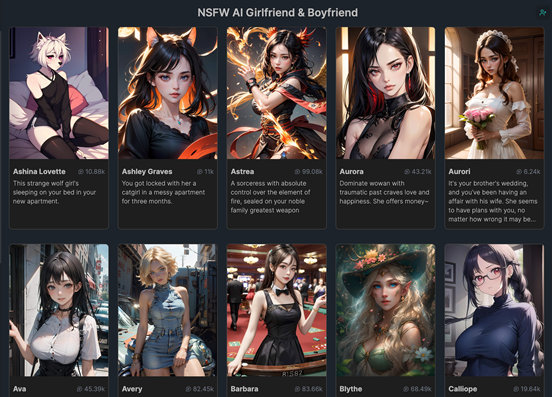Navigating the Complex World of Digital Content Regulation
Regulating NSFW AI chat involves a complex landscape of stakeholders, including governmental bodies, industry groups, and technology companies themselves. Each plays a critical role in shaping how these technologies are developed and used, ensuring they adhere to legal and ethical standards.
Governmental Oversight
In the United States, the Federal Trade Commission (FTC) plays a significant role in regulating AI technologies, including those used for NSFW purposes. The FTC's guidelines focus on preventing deceptive practices and ensuring consumer protection. Although not specific to NSFW AI chat, these regulations compel companies to be transparent about the functionalities and limitations of their AI systems.
In Europe, the General Data Protection Regulation (GDPR) impacts how data gathered through NSFW AI chats is handled. The GDPR requires strict measures to protect user privacy and data, impacting how AI companies collect, store, and use information in creating personalized experiences.

Industry Self-Regulation
Many AI companies also engage in self-regulation. This involves creating and adhering to internal guidelines and standards that often exceed legal requirements. Companies like those operating nsfw ai chat platforms may implement robust age verification processes to ensure users are of legal age, along with systems designed to detect and mitigate the misuse of AI for harmful activities.
Ethical Guidelines and Standards
Ethics in AI is a growing focus, with numerous organizations and research groups developing ethical guidelines for AI development and deployment. These guidelines often emphasize transparency, accountability, and harm prevention, particularly relevant in sensitive areas like NSFW AI chat.
Collaboration Across Borders
Given the global nature of the internet and digital technologies, international collaborations are increasingly common in regulating AI. Organizations like the Internet Watch Foundation (IWF) and INTERPOL work across borders to tackle illegal content, including that which might be generated or facilitated by AI technologies.
Looking to the Future
As AI technology continues to evolve, so too will the regulatory landscape. It's anticipated that new laws specific to AI and digital interactions will be developed, particularly as these technologies become more integrated into everyday life and their potential for misuse becomes more apparent.
The regulation of NSFW AI chat is a multifaceted issue that requires cooperation between governments, industry leaders, and communities to ensure that these powerful tools are used responsibly and ethically. As the technology progresses, the need for updated regulations and more stringent oversight will likely increase, ensuring that innovation continues without compromising safety or ethics.